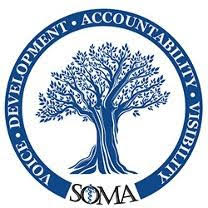› Forums › Fall 2020 Resolution Forum › Resolution: F-20-9: SUPPORT FOR MAIL-IN ABSENTEE BALLOT VOTING FOR HOSPITALIZED PATIENTS
- This topic has 0 replies, 1 voice, and was last updated 3 years, 7 months ago by
Valerie Lile.
-
AuthorPosts
-
-
October 4, 2020 at 8:35 am #3413
Valerie Lile
Keymaster1 WHEREAS, Previous studies have demonstrated that an individual’s state of health can
2 significantly affect their decision and ability to vote. 1 Specifically, those who suffer from
3 cardiovascular disease, uninsured individuals, those who suffer from long term disabilities, and
4 those who self-report poor health status are vulnerable to being under-represented across local,
5 state, and federal governments.
6 WHEREAS Furthermore, lack of political representation is a significant determinant of health
7 and health outcomes.2
8 WHEREAS, Hospitalized individuals are especially at risk for underrepresentation, with nearly
9 half of all patients requiring hospitalization for at least 4 days.3
10 WHEREAS, in addition, with the ongoing COVID-19 pandemic, the number of hospitalized
11 persons, as well as the average length of hospital stay may be increased throughout the voter
12 registration and election period. This is expected to result in a reduced voter turnout for the 2020
13 election cycle compared to preceding election years.4
14 WHEREAS, medical institutions offer the unique opportunity to engage diverse and
15 underrepresented populations in the voting process. Several previous nonpartisan voter
16 registration efforts within these settings have been shown to increase participation in the
17 electoral process, especially among the elderly, adolescents, the medically underserved, and the
18 critically ill.5-8
19 WHEREAS, specifically, physician-led, nonpartisan voter registration initiatives at two different
20 university-affiliated health centers demonstrated notable efficacy, with nearly 90% of previously
21 unregistered patients successfully registering to vote via such efforts.6
22 WHEREAS, there are approximately 924,000 hospital beds in the United States; by assisting
23 hospitalized individuals in exercising their constitutional right to vote, the Student Osteopathic
24 Medical Association (SOMA) and the American Osteopathic Association (AOA) can encourage
25 a positive electoral process and ultimately benefit the patients that their members treat9; now,
26 therefore, be it
27 RESOLVED, that the Student Osteopathic Medical Association (SOMA) and the American
28 Osteopathic Association (AOA) acknowledge the need for improved voter support for
29 hospitalized patients; and, be it further
30 RESOLVED, that SOMA and the AOA support the adoption of policies, legislation, and
31 practices that improve voting capabilities, such as absentee voting, for hospitalized patients for
32 all local, state, and federal government elections.
1 RESOLVED, that SOMA and the AOA encourage Osteopathic medical institutions to promote
2 patient voter capabilities at their local affiliated hospitals and clinics.References:
- Couture, J., & Breux, S. (2017). The differentiated effects of health on political European Journal of Public Health, 27(4), 599-604. doi:10.1093/eurpub/ckw245
- Gollust, S. E., & Rahn, W. M. (2015). The Bodies Politic: Chronic Health Conditions and Voter Turnout in the 2008 Election. Journal of Health Politics, Policy and Law, 40(6), 1115-1155. doi:10.1215/03616878-3424450
- Baek, H., Cho, M., Kim, S., Hwang, H., Song, M., & Yoo, S. (2018). Analysis of length of hospital stay using electronic health records: A statistical and data mining approach. PLOS ONE, 13(4), e0195901. doi:10.1371/journal.pone.0195901
- Paradis H, K. J., Stevenson M, et al. (2020). Notes from the Field: Public Health Efforts to Mitigate COVID-19 Transmission During the April 7, 2020, Election ― City of Milwaukee, Wisconsin, March 13–May 5, 2020. Centers for Disease Control and Prevention, 69(30), 1002- doi: http://dx.doi.org/10.15585/mmwr.mm6930a4
- Bosquet, A., & Mahé, I. (2018). Protected adults’ voting rights: an interdisciplinary study of medical assessment and jurisprudence in France. BMJ open, 8(7), e020522. doi:10.1136/bmjopen-2017-020522
- Liggett, A., Sharma, M., Nakamura, Y., Villar, R., & Selwyn, P. (2014). Results of a Voter Registration Project at 2 Family Medicine Residency Clinics in the Bronx, New The Annals of Family Medicine, 12(5), 466. doi:10.1370/afm.1686
- Lickiss, S., Lowery, L., & Triemstra, J. D. (2020). Voter Registration and Engagement in an Adolescent and Young Adult Primary Care Clinic. Journal of Adolescent Health, 66(6), 747-749. doi: https://doi.org/10.1016/j.jadohealth.2019.11.316
- Kathryn Linder Alisha Maity, M. B., MD, Gregory Kane, MD,. (2019). Implementation of a Medical Student-Led Emergency Absentee Ballot Voting Initiative at an Urban Tertiary Care University Hospital. American College of Physicians. Retrieved from https://www.acorg/membership/medical-students/acp-impact/archive/july-2019/implementation-of-a-medical-student-led-emergency-absentee-ballot-voting-initiative-at-an-urban
- Association, A. H. (2020). Fast Facts on U.S. Hospitals, 2020. doi: https://www.aha.org/system/files/media/file/2020/01/2020-aha-hospital-fast-facts-new-Jan-2020.pdf
Submitted by:
Jason D. Vadhan, OMS-IV – Nova Southeastern University KP-COM
Joel Haines, OMS-IV – Nova Southeastern University KP-COM
Divy Mehra, OMS-IV – Nova Southeastern University KP-COM
Carlos Garcia Galindo, OMS- IV – Alabama College of Osteopathic MedicineAction Taken:
Date:
Effective Time Period: ONGOING
-
-
AuthorPosts
- The forum ‘Fall 2020 Resolution Forum’ is closed to new topics and replies.
